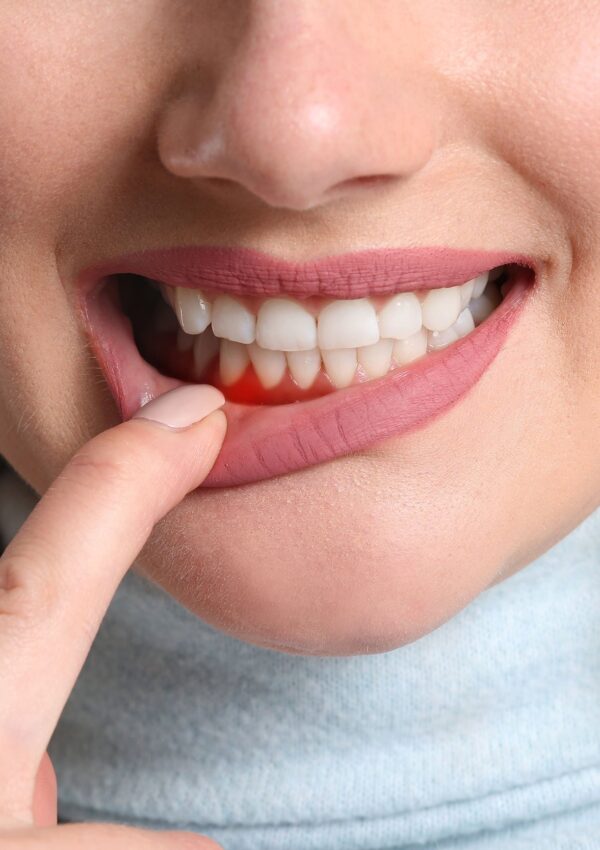Deodorants have become a daily staple in our lives, and it’s hard to imagine going without them. However, most commercial deodorants are loaded with harsh chemicals that can harm our skin and even cause long-term health problems.
Cons of using deodorants
Deodorants are a common personal care product used by millions of people worldwide. They are designed to mask body odor and keep us feeling fresh throughout the day. While deodorants offer a quick solution to an embarrassing problem, they also have some downsides that many people are unaware of. In this article, we will discuss some of the cons of using deodorants and some of the natural alternatives of deodorants.
1. Can cause skin irritation
Deodorants can cause skin irritation and allergic reactions in some people. This is because most deodorants contain chemicals such as aluminum, parabens, and fragrances that can irritate the skin. People with sensitive skin or skin conditions such as eczema or psoriasis are more prone to experiencing skin irritation from deodorants.
2. Using a deodorant can contribute in increasing the risk of breast cancer
There have been some concerns raised about the link between deodorant use and breast cancer. Deodorants contain aluminum compounds that can be absorbed by the skin and accumulate in breast tissue. While there is no conclusive evidence that deodorants cause breast cancer, some studies have suggested that there may be a link between the two.
3. Can stain clothing
Deodorants can leave unsightly stains on clothing, especially white or light-colored fabrics. This is because some deodorants contain ingredients that can react with sweat and cause yellow stains on clothes. These stains can be difficult to remove, and may ruin your favorite shirt or blouse.
4. Can mask underlying health problems
Deodorants mask body odor, which can make it difficult to detect underlying health problems. Body odor can be a symptom of health problems such as liver disease, kidney disease, and diabetes. By masking the odor, deodorants can prevent you from noticing these symptoms and seeking medical attention.
5. Can disrupt the natural balance of bacteria on the skin
Deodorants contain antimicrobial agents that can disrupt the natural balance of bacteria on the skin. This can lead to an overgrowth of harmful bacteria, which can cause skin infections and other problems. Some experts believe that the overuse of deodorants may be contributing to the rise of antibiotic-resistant bacteria.
6. May not be effective for everyone
Deodorants may not be effective for everyone, especially those who sweat excessively. People who sweat a lot may need to use a stronger antiperspirant or see a doctor to address their excessive sweating. Using a deodorant alone may not be enough to control their body odor.
7. Can be expensive
Deodorants can be expensive, especially if you use them regularly. Many deodorants need to be reapplied throughout the day to remain effective, which can add up to a significant expense over time. Some people may find it more cost-effective to switch to a natural alternative or to use baking soda or lemon juice instead.
We can say that while deodorants offer a quick and easy solution to body odor, they also have some downsides that should not be ignored. Skin irritation, staining, and health concerns are just some of the cons of using deodorants. If you are concerned about these issues, you may want to consider switching to a natural alternative or consulting with a dermatologist.
Thankfully, there are natural alternatives to deodorant that can be just as effective, and are much gentler on your skin.
Here are 10 natural alternatives to deodorant that can keep you smelling fresh all day long.
1. Apple Cider Vinegar
Apple cider vinegar is a great natural deodorant alternative that can balance the pH of your skin and eliminate odor-causing bacteria. Dilute the apple cider vinegar with water and apply it to your underarms using a cotton ball.
2. Witch Hazel
Witch hazel is a natural astringent that can help reduce sweat and odor. Witch Hazel is also known to has some anti-inflammatory properties which are very helpful in soothing and calming the irritated skin. Apply it to your underarms with a cotton ball to keep your skin fresh and dry.
3. Baking Soda
Baking soda is a natural deodorizer that can neutralize odors on contact. Simply mix baking soda with water to form a paste and apply it to your underarms. Let it sit for a while, may be a few minutes then simply rinse it off with warm water.
4. Lemon Juice
Lemon juice is a natural astringent that can help eliminate bacteria and prevent odor. You can cut a lemon into half then gently rub it on your underarms. Let it dry, wait for a few minutes, then simply rinse it off with warm water.
5. Coconut Oil
Coconut oil is a natural moisturizer that can also be used as a natural deodorant. It is quite helpful in this regard. You can apply a little amount of coconut oil on your underarms, and allow it to get absorbed into your skin.
6. Tea Tree Oil
Tea tree oil has natural antibacterial properties that can eliminate odor-causing bacteria. Pour a few drops of tea tree oil into little amount of water then apply the mixture to your underarms. You can use a cotton ball for the same.
7. Cornstarch
Cornstarch is a natural absorbent that can help keep your underarms dry and fresh. Simply apply a small amount of cornstarch to your underarms, and let it absorb into your skin.
8. Rose Water
Rose water is a natural astringent that can help reduce sweat and odor. It also has a pleasant fragrance that can keep you smelling fresh. Apply the rose water to your underarms by using a cotton ball or a soft cloth.
9. Aloe Vera
Aloe vera is a natural moisturizer that can also help eliminate odor-causing bacteria. Apply a small amount of aloe vera gel to your underarms, and let it absorb into your skin.
10. Essential Oils
Essential oils such as lavender, peppermint, and eucalyptus have natural antibacterial properties that can help eliminate odor. Mix a few drops of your favorite essential oil with water and apply it to your underarms using a cotton ball.
Frequently asked questions
If you’re looking for natural alternatives to deodorant, you may have a lot of questions. After all, making the switch from conventional antiperspirants to natural options can seem daunting. Here are some of the most frequently asked questions about natural deodorants.
1. Why should I switch to natural deodorant?
Many conventional deodorants contain aluminum, which has been linked to various health concerns such as breast cancer and Alzheimer’s disease. Additionally, natural deodorants are often free from other harmful chemicals such as parabens, phthalates, and triclosan.
2. Will natural deodorant really work?
Yes, natural deodorants can be just as effective as conventional ones. However, it’s essential to note here that the body chemistry differs from person to person, so it is quite possible that what works for one person may not essentially work for another. It may take some experiments and some trial and error methods to choose the right natural deodorant for you.
3. Will I still sweat when using natural deodorant?
Yes, you will still sweat with natural deodorants because they are not antiperspirants. Reason behind is that antiperspirants work by clogging sweat glands, when we talk about natural deodorants, these work by neutralizing odor-causing bacteria.
4. Will I smell bad when using natural deodorant?
No, natural deodorants are designed to keep you smelling fresh. However, it’s important to note that you may need to reapply throughout the day, especially if you are very active or live in a hot climate.
5. Can I use natural deodorant if I have sensitive skin?
Yes, many natural deodorants are formulated for sensitive skin and are free from harsh chemicals that can irritate the skin. Look for products that are labeled “unscented” or “for sensitive skin” if you are concerned about irritation.
6. How do I apply natural deodorant?
Apply natural deodorant to clean, dry skin. Some natural deodorants may need to be warmed up before application, so be sure to read the instructions on the label. You may need to apply more frequently throughout the day, especially if you are very active or live in a hot climate.
7. How do I choose the right natural deodorant for me?
Choosing the right natural deodorant can take some trial and error. Look for products that are free from aluminum, parabens, phthalates, and triclosan. Consider your skin type and any specific concerns you may have, such as sensitivity or excessive sweating.
8. Are there any side effects of using natural deodorant?
While natural deodorants are generally safe to use, some people may experience skin irritation or allergic reactions. If there is a case that you are experiencing any kind of itching, redness, irritation or swelling then discontinue use immediately.
9. Can I use natural deodorant while pregnant or breastfeeding?
Yes, natural deodorants are generally safe to use while pregnant or breastfeeding. However, it’s always a good idea to consult with your healthcare provider before making any changes to your personal care routine.
10. Are natural deodorants more expensive than conventional deodorants?
Natural deodorants can be more expensive than conventional ones, but they often last longer and are better for the environment. Plus, the cost of switching to natural deodorant is a small price to pay for the potential health benefits.
In conclusion, there are many natural alternatives to deodorant that can keep you smelling fresh all day long. These natural alternatives are gentle on your skin, effective, and easy to find. So why not try these out and chose the best natural deodorant for yourself?







I rarely wear deodorant but will try these alternative if I need to!
https://www.kathrineeldridge.com
Gracias por los consejos.